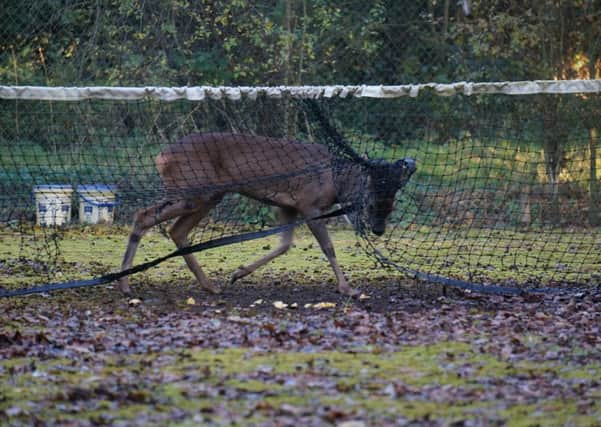RSPCA warning follows deer rescue


The buck was spotted in a tennis court in a Billingshurst Road garden on November 26.
Two inspectors cut the deer - nicknamed Murray after the tennis hero - from the net. He had only suffered a minor injury to his leg, so he was released straight back into the wild.
Advertisement
Hide AdAdvertisement
Hide AdRSPCA inspector Liz Wheeler said: “This poor boy had a very frightening experience. His antlers were completely entwined in the netting and he was getting frantic trying to free himself – really thrashing about and getting himself even more entangled.
“He was actually fortunate to have had such a lucky escape. Deer and other animals can be seriously injured after getting caught up in nets like this, sometimes fatally.
“There is no way he would have been able to untangle himself without any help and had the owners of the property not been at home to find him and thought to call us, it is likely that the deer may have suffered an injury or starved to death.
“As it was Murray survived with no physical damage done and we were able to see him return to the wild. Hopefully he’s learnt his lesson though, and will leave the tennis courts to his namesake in future.
Advertisement
Hide AdAdvertisement
Hide Ad“Netting of every type poses a dangerous hazard to our wildlife and it is important to remind the public how lethal it can be to animals.”
“Tennis, football and badminton nets are often set up and left unattended in gardens and parks with many people not realising they can be death traps for wildlife. Fruit netting in gardens can also entangle smaller animals such as hedgehogs or snakes.
“The problem is so easily avoidable by ensuring nets are removed and stored, or taken home after a game of tennis and any discarded netting is safely placed in a bin.”
She appealed for anyone with netting on their property to make frequent checks, and to call 0300 1234 999 to report trapped animals.